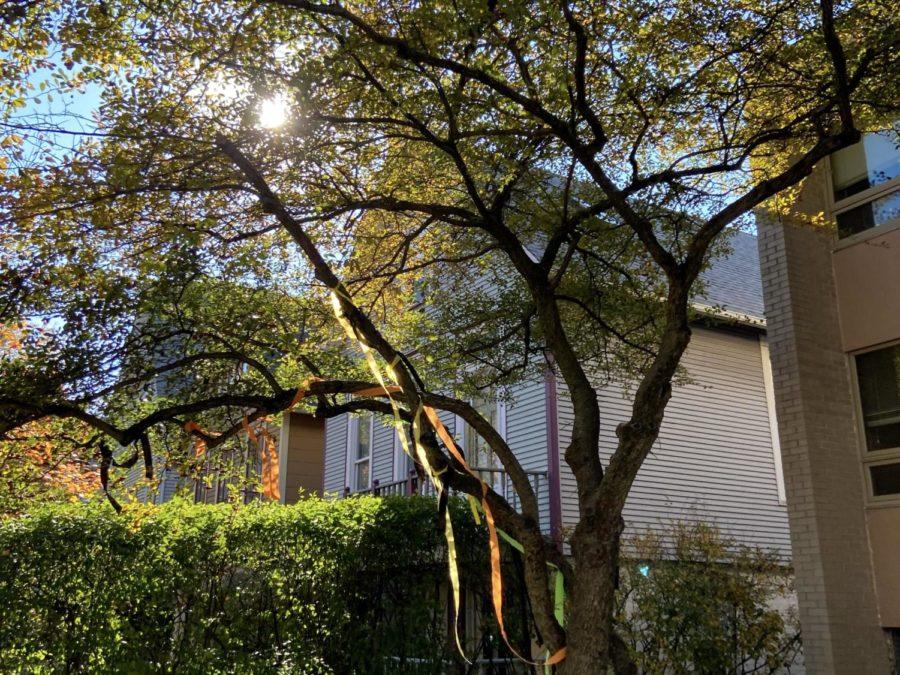Your donation makes the work of student journalists of University of Chicago possible and allows us to continue serving the UChicago and Hyde Park community.
Phoenix Sustainability Initiative to Bring Composting Program to Granville-Grossman Residential Commons
Students in Granville-Grossman can expect the composting program to arrive toward the end of the 2022 winter quarter.
February 19, 2022
In the coming months, students living in Renee Granville-Grossman Residential Commons can expect an opt-in composting program that aims to divert food waste from Chicago-area landfills and demonstrate the viability of on-campus composting initiatives. The new program, spearheaded by the student group Phoenix Sustainability Initiative (PSI), follows two years of attempts to implement campus composting projects at scale.
The attempt to bring composting to residence halls began in the 2020-2021 academic year after a PSI member raised concerns about the amount of organic waste being thrown away.
“Emilio Levins Page, one of our composting group members, was living in North, and was really stressed out by all of the food waste he was generating, eating in the dorms but using the take-out stuff. That was the impetus for some sort of on-campus composting option,” said Chloe Brettmann, a member of the Sustainability Initiative who helped lead the composting program.
The project is the culmination of several years of efforts to popularize composting among the student body. The COVID-19 pandemic derailed an initiative to bring behind-the-counter composting to student-run cafés in fall of 2019. The following year PSI obtained funding from the University’s Green Fund to partially subsidize composting subscriptions for University students living off-campus in Hyde Park.
Hamstrung by a global pandemic, the group’s strategy is to seize windows of opportunity as they come. “We’ve just been trying to do whatever we had the most momentum with,” said Andre Dang, another student leader within the composting initiative.
This year, PSI’s focus has rested squarely on bringing composting to Renee. The pilot initiative is modeled after similar programs at Loyola University Chicago, Harvard, Northwestern, and MIT. The initiative aims to slowly bring composting to campus life, transitioning the University to more sustainable practices. Composting redirects food waste from landfills, lowering the generation of greenhouse gases such as methane. Broadly, the practice also reduces the use of municipal solid waste incinerators, which are disproportionately located in minority communities most burdened by environmental hazards.
$1,521 in funding for the program was successfully secured in the fall quarter, but not without roadblocks.
“There’s a lot of institutional fear about liability for composting,” Brettmann said, listing concerns about pests and sanitation as obstacles that the initiative had to address. “There’s a lot of misconceptions and stereotypes about it that we were told were reasons why we couldn’t compost or why the project wouldn’t work.”
While literature on the risks of residential composting is limited, PSI argues that composting offers no greater risk of pests than normal waste disposal.
“What most people need to think is that compost is not creating waste out of thin air,” Dang said. “It’s just that waste that once went into a trashcan is now going into a separate bin…it’s just putting it into a separate place where we can offset some of the environmental damage.”
PSI representatives said that administrators’ support had been crucial for the success of the initiative. The director of University Dining, Christopher Toote, volunteered facilities space for the project, and Dean Richard Mason, Assistant Vice President for Campus Life, worked with the Sustainability Initiative to develop a proposal that would assuage fears about the liabilities of composting.
PSI hopes to use Granville-Grossman as a stepping stone to demonstrate the viability of the project. “The goal is to try this initiative out with South, gather as much data about the logistics of it as we can, and then slowly add more dorms,” said Brettmann. The group also has plans to expand the number of drop-off locations throughout campus and revisit the plans to bring composting to the student-run cafes.
Students who opt-in to the composting program can expect to receive a sealed bucket and biodegradable liner in which to deposit food scraps and other compostable materials in their dorm rooms. Once per week, students will bring their buckets to a scheduled drop-off location, where The Urban Canopy, a local compost hauler and food justice initiative, will collect the waste materials and provide students with a new compost liner.
The exact start date of the initiative remains uncertain, with the delayed return to campus derailing the initiative’s intended timeline. PSI has received approval to begin coordinating with Dining, Facilities Services, and Chartwells Higher Education for the implementation of the program, and to promote the initiative to residents and resident heads in Granville-Grossman. The program will launch in full towards the end of the 2022 winter quarter, according to PSI representatives.
